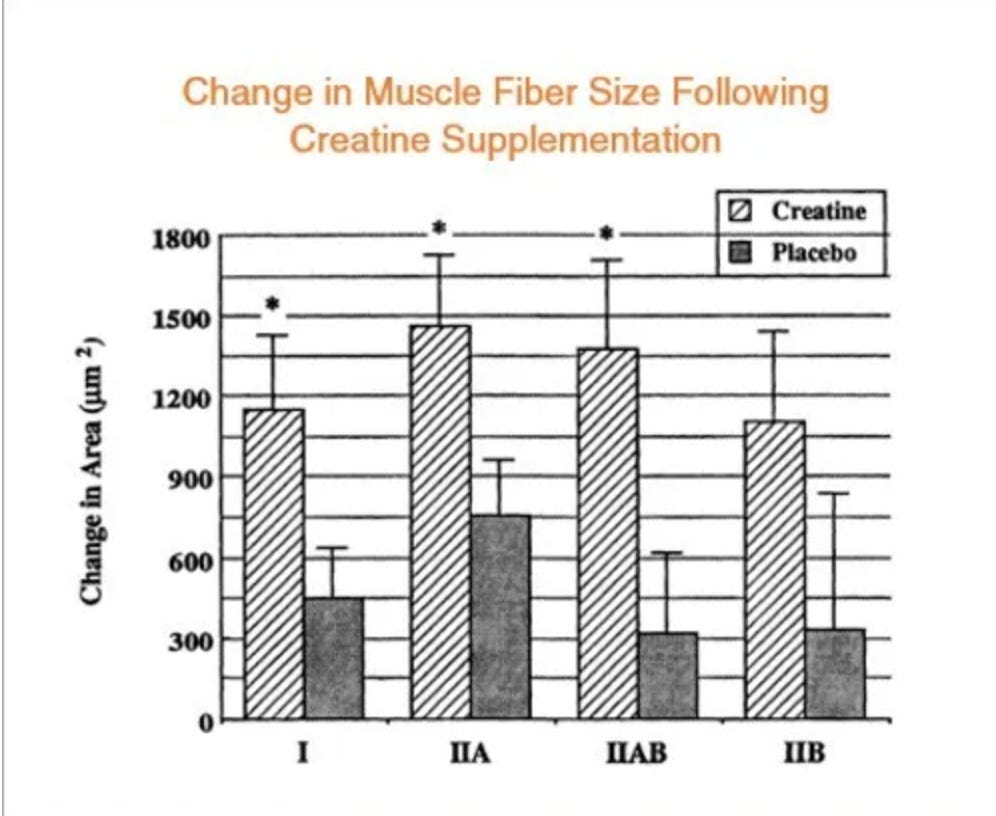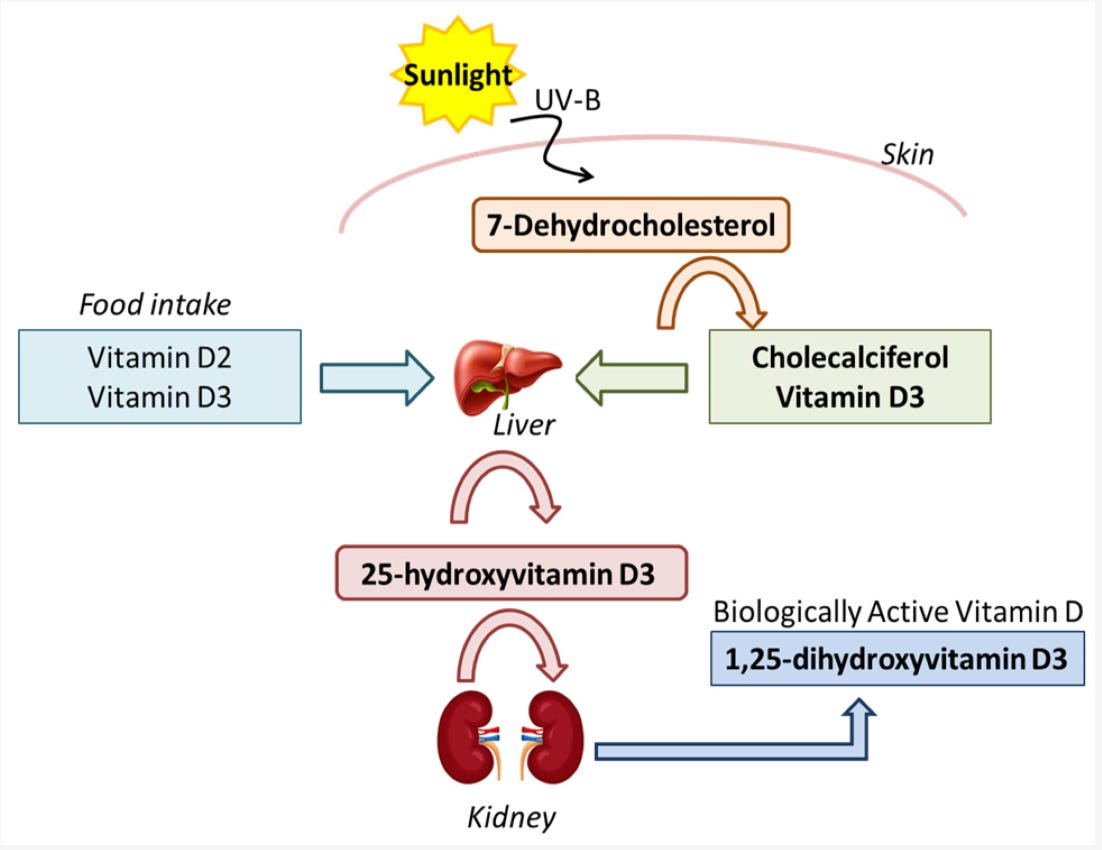I'm a Gastroenterologist - these are the supplements I take...
Backed by evidence...not marketing
Let’s be real….most supplements suck.
The supplement aisle is a minefield of promises.
Pills that pledge everything from eternal youth to superhuman strength.
Most are expensive urine.
But after diving deep into the research, real randomised controlled trials, not marketing materials these supplements earned a place in my daily routine.
They’re boring….but effective!
General Disclaimer: *Deep breath* - this is just what I take. This is not medical advice for you specifically. Always consult your healthcare provider before starting any supplement regimen, especially if you have existing health conditions or take medications.
Omega-3 Fish Oil
In an ideal world I would try to eat oily fish 2-4x per week.
Sadly, I don’t (but I do try/get close)….therefore I supplement it everyday. Why?
Fish oil is made of two key nutrients that your body can’t make on its own.
EPA and DHA….these are Omega-3s; that are used to build the outer membrane of nearly every cell in your body. Here is why it makes the cut.
Mental health - A meta-analysis of 26 RCTs found that EPA-dominant formulations (≥60% EPA) at doses around 1g daily produced significant antidepressant effects. The reason behind this may be EPAs role in supporting the brain's healing environment.
Cardiovascular protection - the REDUCE-IT trial changed the game. Pure EPA at 4g daily reduced major cardiovascular events by 25% in high-risk patients already on statins.
Brain aging? Lower doses (under 1.73g daily) showed cognitive benefits, while higher doses did nothing. Counterintuitive but clear. But possible benefits in slowing brain aging, memory and reaction time.
And yes, omega-3s reshape your gut microbiome, reversibly increasing bacterial diversity, which fascinates me!
The muscle-building, fat-burning claims? Sorry. The evidence isn't there. Metabolic markers improve, but direct body composition changes remain elusive in quality trials.
Warning: There is a possible association with omega-3 and atrial fibrillation in patients with elevated cardiovascular risk…therefore consult your specialist first.
Creatine: not just for bodybuilders
Creatine might be the most misunderstood supplement in existence.
Yes, it builds muscle (the initial reason I started taking it 10 years ago)
Every cellular process needs ATP (adenosine triphosphate). Think of it as your body's energy currency. Creatine helps regenerate ATP faster, particularly during high-demand activities.
Your muscles store creatine as phosphocreatine. When energy demands spike, phosphocreatine donates phosphate groups to ADP, instantly creating fresh ATP. More stored creatine equals faster energy recovery.
Meta-analyses confirm 4.4kg extra upper-body strength and 10.9kg extra lower-body strength versus training alone. But that's just the beginning.
The cognitive benefits are emerging. A 2024 meta-analysis found memory improvements, particularly in older adults who saw nearly triple the benefit of younger people.
Processing speed and attention improved too. Why? Your brain runs on ATP, and creatine supercharges cellular energy production.
The safety profile? Exceptional. Analysis of 685+ trials and 28.4 million adverse event reports found virtually no serious side effects.
The International Society of Sports Nutrition calls it one of the most extensively studied supplements ever.
Finally….sleep-deprived doctors performing complex procedures. Students during exams. Anyone facing cognitive stress. Creatine helps maintain mental performance when fatigue sets in.
One study found a single high dose of creatine improved cognitive performance and processing speed during 21 hours of sleep deprivation. The brain literally had more fuel to function.
Simple. Effective. Science-backed.
Vitamin D: personal for me
I got some blood work done and….shock horror! I had Vitamin D deficiency.
So I supplement it.
We naturally synthesise vitamin D through sun exposure, specifically, UVB radiation converting 7-dehydrocholesterol in our skin.
But modern life happens indoors. In the UK, deficiency runs rampant, especially in winter…..probably explains my blood work (Maybe I should move to a hotter country!)
A meta-analysis of 25 RCTs found vitamin D reduced respiratory infections by 12% overall. But in severely deficient individuals? Risk dropped by 42%. The supplement works brilliantly, but only if you need it.
Depression follows the same pattern. Significant benefits for those with clinical depression and low vitamin D, minimal effects for everyone else.
Bone health? Major trials like VITAL (25,000 participants) found no fracture reduction in vitamin D-sufficient adults. Some studies even showed excessive supplementation decreased bone density.
The lesson? Test, don't guess. Get your levels checked. If you're deficient, 1000-2000 IU daily works. If you're not, save your money.
Magnesium Glycinate: The Gentle Giant
Magnesium deficiency affects up to 50% of adults, yet most never know it.
I chose the glycinate form for one reason: tolerability.
Other forms cause digestive upset. Glycinate doesn't.
RCTs show magnesium reduces sleep onset time by 17 minutes and improves sleep quality scores. The mechanism? GABA activation, NMDA receptor modulation, and increased melatonin production while tamping down cortisol.
A trial using 248mg daily showed 6-point improvements in depression scores and 4.5-point reductions in anxiety, within just two weeks. Meta-analyses confirm this was not a fluke
There you go
Supplements aren't magic.
You certainly can’t supplement your way out of a rubbish diet and sedentary lifestyle.
They're just tools.
Tools that work when matched to the right job.
EPA-dominant omega-3s for mood and heart health. Creatine for muscle and mind. Vitamin D for documented deficiency. Magnesium glycinate for sleep and stress.
Test when possible. Seek specialist approval. Start low. Monitor your response.
And remember….these work for me based on my needs and the evidence.
Your mileage may vary. That's not disclaimer speak. That's science.
Struggling with digestive issues that affect your daily life? Invest in your gut health with a private, personalised consultation where I will explore your specific symptoms and develop a targeted treatment plan. Take the first step toward digestive wellness today: https://bucksgastroenterology.co.uk/contact/
References
Liao Y, et al. Efficacy of omega-3 PUFAs in depression: A meta-analysis. Transl Psychiatry. 2019;9(1):190.
Freeman MP, et al. Omega-3 fatty acids: evidence basis for treatment and future research in psychiatry. J Clin Psychiatry. 2010;71(12):1397-409.
Bhatt DL, et al. Cardiovascular Risk Reduction with Icosapent Ethyl for Hypertriglyceridemia. N Engl J Med. 2019;380(1):11-22.
Pottala JV, et al. Higher RBC EPA + DHA corresponds with larger total brain and hippocampal volumes. Neurology. 2014;82(5):435-42.
Prokopidis K, et al. Effects of creatine supplementation on cognitive function in adults: a systematic review and meta-analysis. Front Nutr. 2024;11:1424972.
Martineau AR, et al. Vitamin D supplementation to prevent acute respiratory infections. Lancet Diabetes Endocrinol. 2021;9(5):276-292.
Mikola T, et al. The effect of vitamin D supplementation on depressive symptoms in adults. Crit Rev Food Sci Nutr. 2023;63(24):7352-7367.
Mah J, et al. Oral magnesium supplementation for insomnia in older adults: a Systematic Review & Meta-Analysis. BMC Complement Med. 2021;21(1):168.
Tarleton EK, et al. Role of magnesium supplementation in the treatment of depression: A randomized clinical trial. PLoS One. 2017;12(6):e0180067.
General Disclaimer
Please note that the opinions expressed here are those of Dr Hussenbux and do not necessarily reflect the positions of Buckinghamhsire Healthcare NHS Trust. The advice is intended as general and should not be interpreted as personal clinical advice. If you have problems, please tell your healthcare professional, who will be able to help you.









I am a psychiatric PA and therapist and those are the same supplements I recommend my patients take for mental health 🙌🏻. Gut health improves mental health. It’s all connected. Thank you for sharing this 💫
Brilliant Arif. I'm a Clinical Nutritionist. I recommend these to most of my clients along with a probiotic.